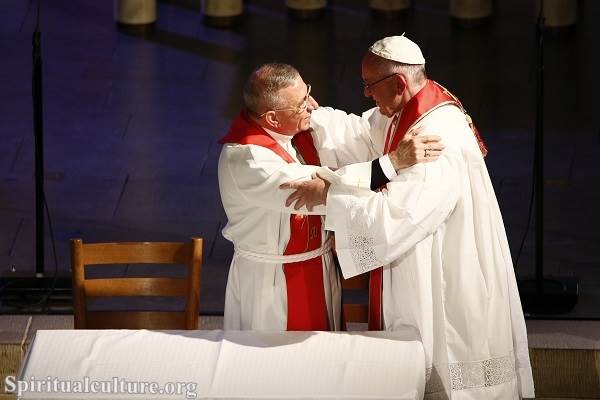John Calvin, a pivotal figure in Christian history, is renowned for his significant role in the development of the system of Christian theology later known as Calvinism. This influential French theologian and pastor during the Protestant Reformation was a central figure in the development of Protestantism, a movement that reshaped the religious landscape of Europe and had profound implications worldwide.
Born on July 10, 1509, in Noyon, Picardy, France, John Calvin was destined for the church by his father, who was a lawyer. He was a brilliant student who studied philosophy and law at the University of Paris, Orleans, and Bourges. However, his life took a dramatic turn in 1533 when he experienced a sudden conversion and broke away from the Roman Catholic Church to join the forces of the Protestant Reformation.
Protestantism and John Calvin
The Protestant Reformation, which began in the early 16th century, was a movement against what its followers perceived as errors in the Roman Catholic Church. It was initiated by Martin Luther, a German monk, but found its most articulate and influential expression in the writings and teachings of John Calvin.

John Calvin (1509-1564)
Calvin’s contribution to Protestantism was monumental. He wrote a seminal work, the “Institutes of the Christian Religion,” which was a systematic presentation of Protestant thought, and it has remained influential in the Protestant world to this day. This work, first published in 1536, was an attempt to standardize the theories of Protestantism and protect its followers with a definitive text.
Calvin’s teachings emphasized the sovereignty of the Scriptures and divine predestination—a doctrine holding that God chooses certain people for salvation. His views were revolutionary, and they stirred controversy and debate, but they also laid the foundation for Reformed theology and Presbyterianism.
Calvin’s Geneva
In 1536, Calvin was invited to Geneva, Switzerland, to lead the Protestant Reformation there. He established a theocratic government and a church liturgy that emphasized the preaching and teaching of Scriptures, the singing of psalms, and the regular celebration of the Lord’s Supper.
Calvin’s Geneva became a magnet for Protestants from all over Europe, transforming the city into the informal capital of the Protestant Reformation. Under his leadership, the city became a center for religious refugees, and its schools earned a reputation for educational excellence. Calvin’s influence extended throughout Europe and into the New World, shaping the development of the modern Western world.
Legacy of John Calvin
John Calvin’s impact on Protestantism and the Christian church as a whole is immeasurable. His writings and teachings have shaped the beliefs and practices of millions of Christians worldwide. His theocratic vision for Geneva laid a foundation for the Puritan societies of New England. Moreover, his emphasis on the authority of the Bible, the importance of preaching, and the priesthood of all believers have remained central tenets of Protestantism.
The Calvinist tradition has been one of the most influential and enduring legacies of the Protestant Reformation. It has been embraced by a variety of Christian denominations and has profoundly influenced the development of democracy, human rights, capitalism, and various aspects of culture in the Western world.
John Calvin’s life and work continue to inspire and challenge Christians today. His commitment to the authority of the Bible, his courage in the face of persecution, and his intellectual rigor in the defense of his beliefs are examples for all who seek to understand and live out their faith.
In conclusion, John Calvin, the cornerstone of Protestantism, was a man of deep faith, a rigorous intellect, and a passionate commitment to God’s sovereignty. His teachings have shaped the course of Christian history, and his influence continues to be felt in the church and society today.



